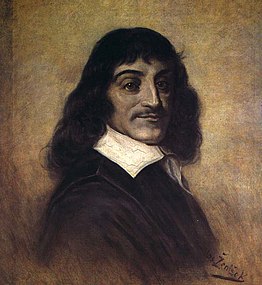František Ženíšek

František Ženíšek (25 May 1849, Prague – 15 November 1916, Prague) was a Czech painter. He was part of the "" (Generation of the National Theater), a large group of artists with nationalistic sympathies.
Biography[]
He was born into a family of merchants and displayed an affinity for art at an early age. Reluctantly his father agreed to let him pursue his interests and allowed him to take lessons from Karel Javůrek while he was still in school.[1] From 1863 to 1865, he was at the Academy of Fine Arts, studying with Eduard von Engerth. After a brief stay in Vienna, assisting Engerth with work at the State Opera, he was back at the Academy in Prague, working with Jan Swerts and the history painter Josef Matyáš Trenkwald.[2]
In 1875, he received his first major commission; painting murals at the city hall in Courtrai, Belgium.[3] Then, in 1878, while making a study trip to Paris, he gained an important friend and supporter in Josef Šebestián Daubek, a well-known patron of the arts, who engaged him to decorate his home in Liteň. He later accompanied Daubek on his honeymoon to Holland, and painted a portrait of the new couple.[4]
Soon after returning from Paris, he and Mikoláš Aleš won a competition to decorate the foyer of the National Theater with historic and allegorical designs. Ženíšek went on to decorate the auditorium ceiling and design a curtain, although the curtain was destroyed by a fire in 1881.[1] He also painted windows at the church in Karlín and lunettes at the National Museum as well as over 80 portraits.[3]
From 1885 to 1896, he was a Professor at the Academy of Arts, Architecture and Design, where his assistant was Jakub Schikaneder. Then, from 1896 to 1915, he was a Professor at the Academy of Fine Arts, where his students included Jaroslav Špillar and Jan Preisler.[2] In 1898, he was one of the founders of "" (Union of Fine Artists), in an effort to strengthen the Czech nationalist viewpoint in the arts.
His son, František (1877–1935) was also a painter of some note.[5]
Selected paintings[]

Portrait of René Descartes, after Frans Hals

Study for the curtain in the National Theatre

Oldřich and Božena

Portrait of Josef Daubek
References[]
- ^ Jump up to: a b Brief biography @ Filmová Databáze.
- ^ Jump up to: a b Informační systém abART: Ženíšek František @ AbArt
- ^ Jump up to: a b Brief biography @ ArtMuseum.cz
- ^ Zámek Liteň Daubek and the artists he supported.
- ^ František Ženíšek the younger @ ArtNet.
Further reading[]
- František Xaver Jiřík, František Ženíšek, Jednota Umělců Výtvarných, 1906
- Prokop Toman, Profesor František Ženíšek (exhibition catalog), Jednota umělců výtvarných, 1938
- Naděžda Blažíčková-Horová, František Ženíšek (1849 - 1916), Národní galerie, 2005 ISBN 80-7035-315-5,
External links[]
| Wikimedia Commons has media related to František Ženíšek. |
- Oldřich and Božena a video from Česká televize
- Tony Ozuna, "Visual historian of a nation" from the Prague Post, 2006 [1]
- 1849 births
- 1916 deaths
- Artists from Prague
- History painters
- Czech nationalism
- 19th-century Czech painters
- 19th-century male artists
- Czech male painters
- 20th-century Czech painters
- 20th-century male artists
- Burials at Olšany Cemetery



